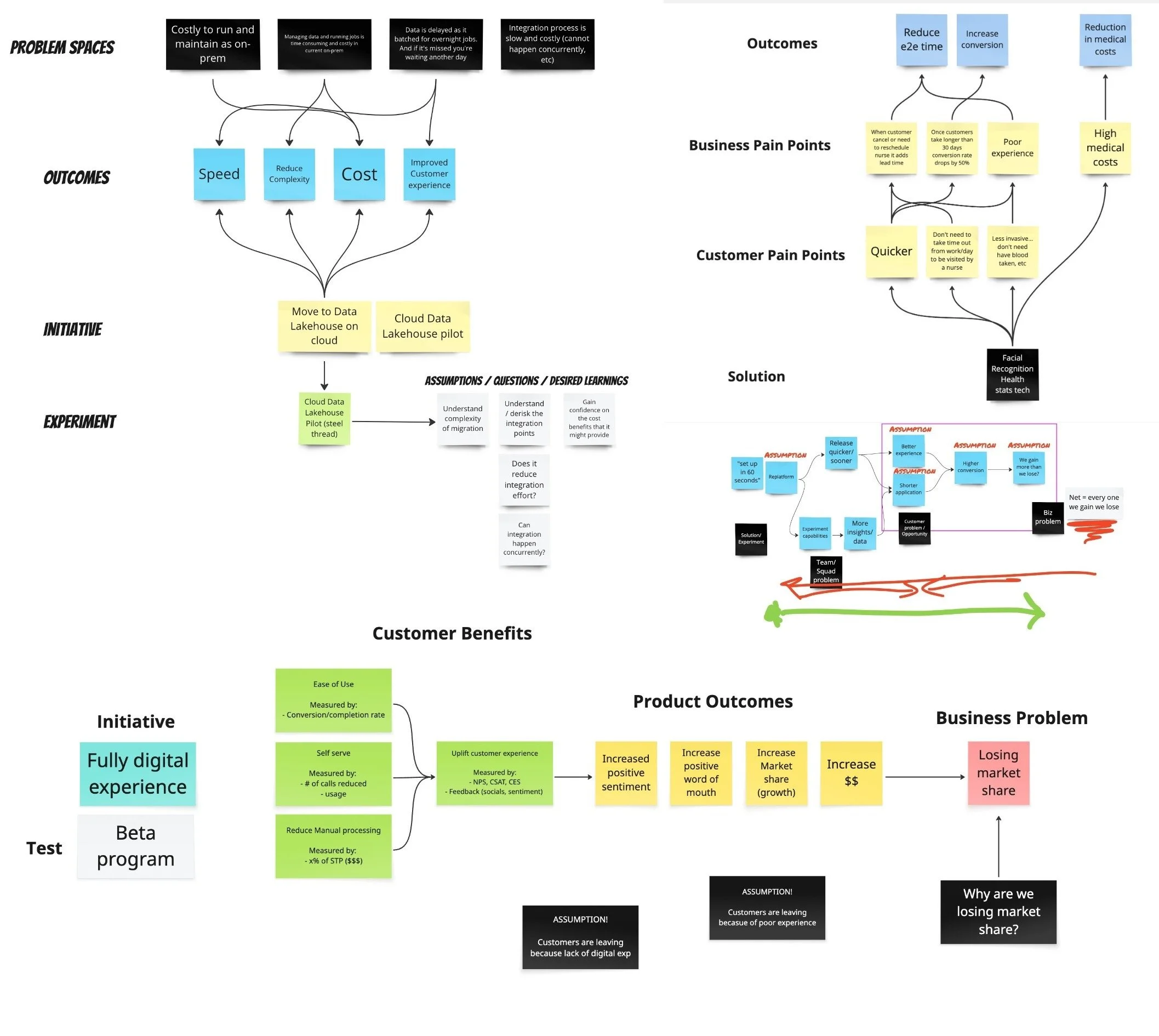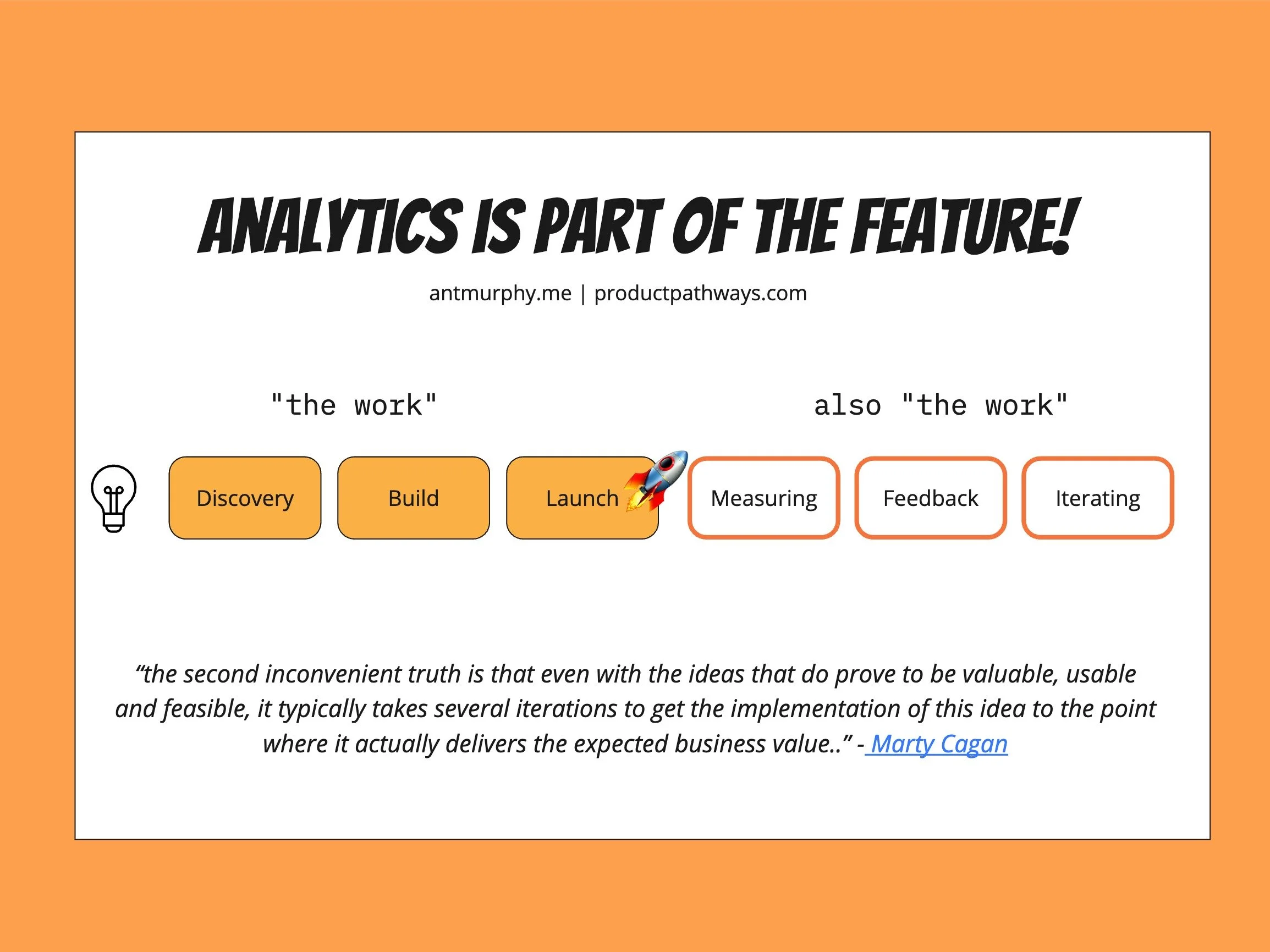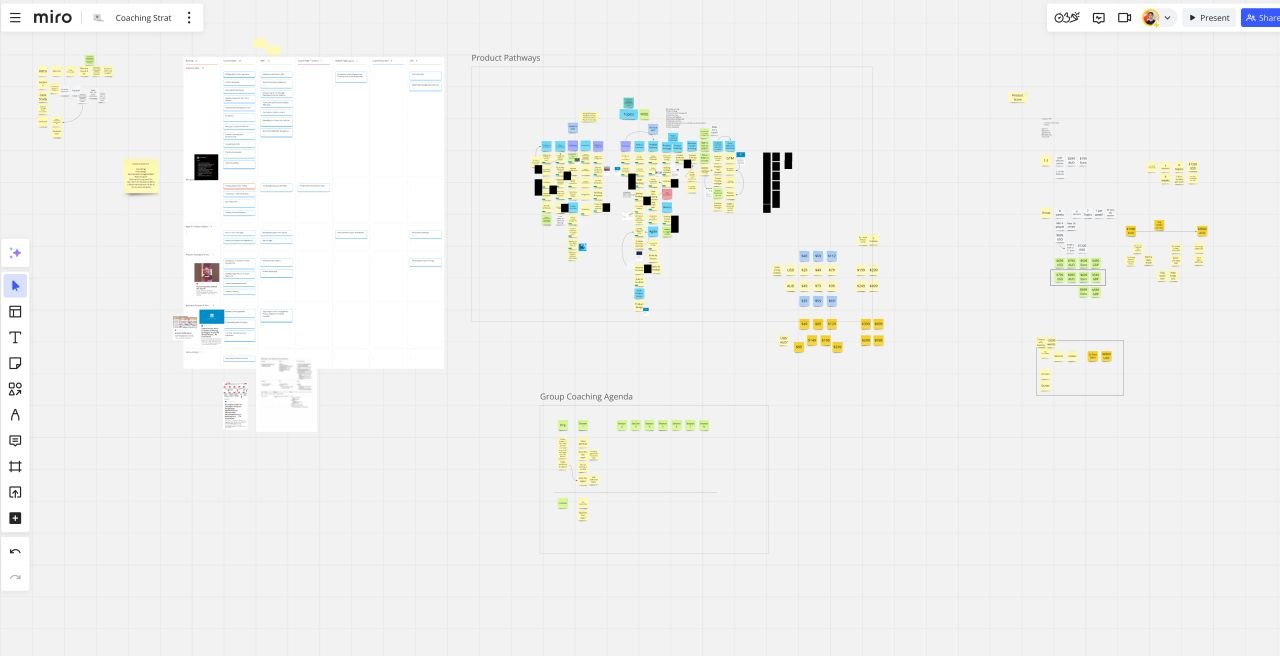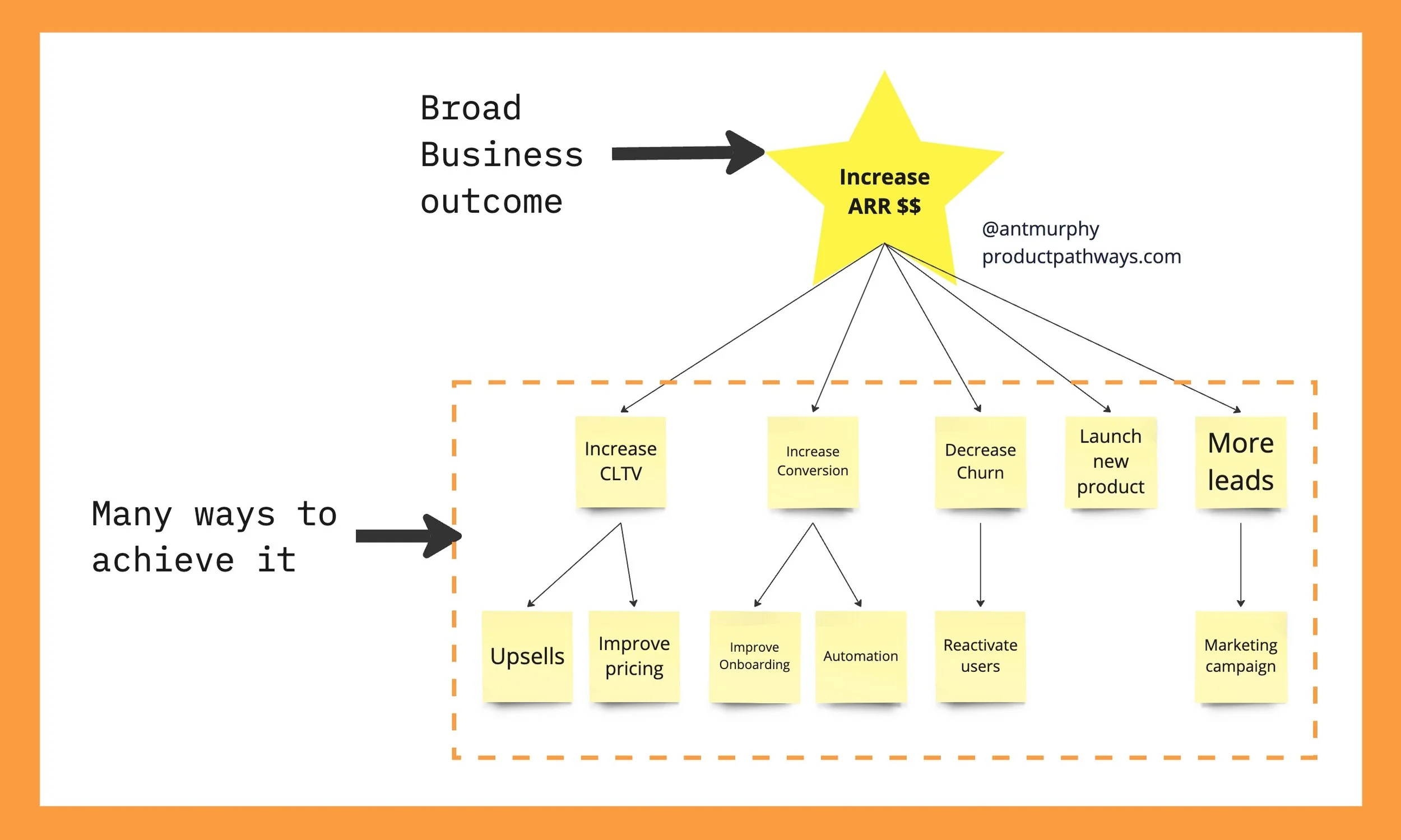Helping Founders and Product People build better products.
Join 11,000+ product people improving their craft for FREE every week with real advice from the trenches on building better Products, Businesses and Leadership.
Read previous posts of ‘The PBL Newsletter’
Good Leader, Bad Leader
I worked with a VP of Product who said something that really stuck with me;
“My job isn’t to make my life easier, it’s to make my team’s life easier.”
Servant leadership in a nutshell 👏
When I reflect on my career I feel very grateful to have had some many amazing leaders and mentors over the years. Including my first job packing supermarket shelves!
Of course, it hasn’t been all rosy. I’ve had my share of bad managers and have witnessed some, honestly, terrible behaviours.
But I don’t want to fixate on the bad. Instead I want to share some of the practices I’ve picked up from the best product leaders, executives and founders.
I hope this post is not only actionable but inspirational as well.
Don’t Follow Frameworks. Break them.
"While many teams work top-down, starting by defining a clear desired outcome, then mapping out the opportunity space, then considering solutions and finally running assumption test… the best teams also work bottom-up. They use their assumption tests to help them evaluate their solutions and evolve the opportunity space.” - Teresa Torres
Analytics IS Part of the Feature, not Separate!
An “Inconvenient Truth” about product is that you’re not going to nail it the first time. As a result a analytics isn’t an optional add on. It’s part of the feature!
“the second inconvenient truth is that even with the ideas that do prove to be valuable, usable and feasible, it typically takes several iterations to get the implementation of this idea to the point where it actually delivers the expected business value..” - Marty Cagan
Let's talk Dual Track: Continuous Discovery and Delivery
Most teams talk about “discovery” and “delivery” like they’re separate tracks—but what happens when they run side-by-side, all the time?
In this post, I unpack what dual-track agile really looks like in practice, why continuous discovery is harder than it sounds, and how to avoid the most common traps teams fall into. If you're navigating product development at scale, this one’s for you.
I asked 40 product leaders ‘What is Discovery?’ Here’s what they said
As part of my discovery for the Product Discovery course I’m working on - yes going very meta here - I decided to ask a bunch of product leaders, how do they define product discovery?
I then expanded that to the 35,000+ followers I have and ended up with 40 different definitions for product discovery.
Of course this shows that if you get 10 product people in a room, the chances of us all agreeing on something is slim to none 😆 but I was genuinely curious on what themes would emerge and if there were any better ways to frame product discovery.
Product Roadmaps are NOT Todo Lists
Product Roadmaps are NOT a plan or todo list.
If you have verbs like "discover" “design” “build”, etc on your roadmap you’ve got a plan not a roadmap!
And whilst most product people get this conceptually, there’s still far too many roadmaps that look like gantt charts.
'Bring it back to the problem'
One of the worst advice I got when I was starting my product career was to "prioritize based on value"
Whilst this sounds nice and of course isn't wrong, per se.
The problem is that 'value' is ambiguous.
But as Jeff Gothelf says:
“Value” is the most ambiguous word in business.
Escape OKR Theatre
“9 Ways to Improve your OKRs”
Over the last couple of weeks I’ve gotten a lot of questions about OKRs (Objectives and Key Results), including one yesterday whilst writing this post… honestly if this was published I could have just sent them the link.
So let’s avoid another call. In this post I want to equip you with the different hallmarks I look for in effective OKRs so you can self-diagnose and hopefully escape OKR theatre!
Let’s get into them
What is Product Management?
If you missed last week’s webinar with Product Ops legend, Antonia Landi, don’t worry the recording is up on YouTube here.
We covered a lot of ground, but one thing I didn’t expect was to go all meta and discuss “what is product management?”
Driver + Navigator
I love this model for clarifying roles and responsibilities because it's light weight, simple, easy to use...and it works!
Inspired by the driver-navigator pattern from pair programming, I call it (you guess it!) 'Driver + Navigator'.
Who is driving?
and, Who is navigating?
Great Product Managers Go Deeper
Here's why I'm skeptical on AI.
That's not to say I don't think it's going to have a material impact on our world — I think it will — but just because something can be done with AI doesn't mean it's going to provide the same value.
Hear me out... (and I totally recognise not everyone is going to agree with me on this one!)
Here's a stat that might blow your mind;
The number of independent agents in the US has grown from 45,000 in the late 90s to more than 105,000 in early 2020, before the pandemic — that's more than a 230% increase! (reference 'The Jolt Effect').
Product Strategy Should be Messy
Coming up with a product strategy should be messy.
It's not some clean fill in the box activity.
Instead it's often big messy Miro boards, multiple white boarding sessions, synthesising loads of data, and documents plastered with comments.
And a lot of back-and-forth.
It's important to not mistake a neat Product Strategy document at the end as the thing.
Empowerment & Constraints
I don’t like using the term “empowered” because it’s ambiguous.
Empowered to do what?
Are you empowered to expand your product internationally
Empowered to build a whole new business within your current org?
Build a new brand under a parent company?
Of course, empowerment doesn’t mean “do whatever you like” but therein lies the question:
What exactly are you empowered to do?
Why You Need a 'NOT Doing' List, not a Todo List
We usually think in additive terms.
Building the next feature, the next 'big bet', or expanding into a new market.
It's always adding more.
But what if growth could be found in removing instead?
I believe this is true for most products.
And it's was why I decided to create a NOT doing list rather than a todo list this year (full list at the end).
Top 5 Challenges Product Managers Faced in 2024
2024 was a crazy year for product management; it got canceled more times than I can count…
…and I can count to at least 11!
From Airbnb “getting rid” of Product Managers to my LinkedIn feed being filled with posts about how ‘product is dead’ and ‘all hail AI.’
It’s been a wild year!
Between the 150,000 people who read this newsletter and the most common challenges across my clients, here are the top 5 challenges that product people like yourself faced in 2024:
Product Discovery Should Speed Up Delivery, NOT Slow it Down
I'm sure you’ve run into this thinking before too, that involving engineers in discovery is a waste and will slow down delivery as they’re spending less time doing. But as counter-intuitive as it may feel, when you involve the whole team into product discovery it should speed up delivery not slow it down.
Data-Informed, NOT Data-Driven
Being data-driven can be an awful trap.
We believe we’re collecting data that portrays an unbiased view of the world.
Data that will help us make the ideal decision.
After all, that’s what the data says, right?
Bad news. Your data is biased.
“Context NOT Control”
One of your primary responsibilities as a leader is to create clarity.
Clarity on:
-context, strategy, vision, goals
-roles, careers, expectations
-culture, boundaries, what’s acceptable vs not, etc…
A lot of problems I see in orgs can boil down to a lack of clarity.
Product Discovery Activities by Risk
Product Discovery activities by risk. This isn't supposed to be an 'ultimate list' or 'must do' I created it as a guide to help give you an idea of some of the discovery activities that you might do depending on what you need to test.
Prioritization & Urgency: Key lessons from John Cutler’s Prioritization Course
This post will make you rethink prioritization through the lens of urgency.
Lessons and reflections from John Cutler’s Effective Prioritzation Workshop.



















